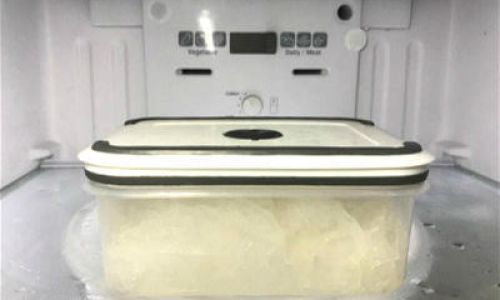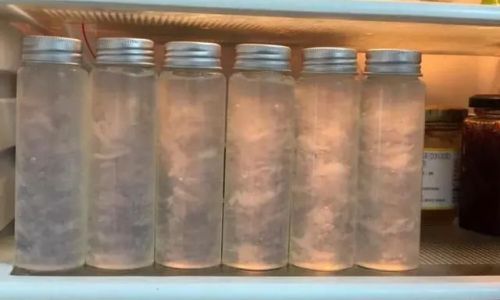Introduction:
Edible bird’s nest, a luxurious delicacy revered in many Asian cultures for its nutritional benefits and perceived health advantages, has been a subject of intrigue and debate for centuries. Derived primarily from the salivary secretions of certain swift species, these nests are meticulously harvested, cleaned, and processed before being consumed. One common question among bird’s nest enthusiasts and newcomers alike is whether storing edible bird’s nest in the refrigerator is necessary or advisable. This article delves into the intricacies of storing bird’s nest, exploring the pros and cons of refrigeration, alternative storage methods, and the impact of storage conditions on the quality and shelf life of this precious commodity.
Understanding Edible Bird’s Nest:
Before discussing storage methods, it’s crucial to understand the basic characteristics of edible bird’s nest. These nests are composed primarily of proteins, glycoproteins, and minerals, with a unique texture and flavor that sets them apart from other food items. The quality and purity of bird’s nest can vary greatly depending on factors such as the species of swift, the location of the nest, and the processing methods employed. High-quality bird’s nest is typically characterized by its cleanliness, color (ranging from white to light brown), and its ability to retain its shape and texture when cooked.

The Importance of Proper Storage:
Proper storage is paramount to preserving the quality, taste, and nutritional value of edible bird’s nest. Improper storage conditions can lead to the growth of mold, bacteria, and other microorganisms, which can compromise the safety and enjoyment of the product. Additionally, exposure to excessive heat, humidity, or light can degrade the nest’s proteins, resulting in a loss of texture and flavor. Therefore, choosing the right storage method is essential for maintaining the integrity of your bird’s nest investment.
Refrigeration: The Pros and Cons:
Refrigeration is often considered a safe and effective way to extend the shelf life of many foods, including perishable items. However, the suitability of refrigerating edible bird’s nest is not as straightforward. Here are some key points to consider:
Pros:
-
Preservation of Freshness: Refrigeration helps to slow down the growth of bacteria and other microorganisms, thereby preserving the freshness and safety of the bird’s nest.

-
Moisture Control: By maintaining a cool and dry environment, refrigeration can help prevent moisture-related issues such as mold growth and degradation of texture.
-
Extended Shelf Life: Properly refrigerated bird’s nest can retain its quality for longer periods compared to those stored at room temperature.
Cons:
-
Texture Changes: Refrigeration can cause the proteins in bird’s nest to denature, leading to changes in texture and mouthfeel upon cooking. This is particularly noticeable in nests that are intended for desserts or dishes requiring a specific texture.
-
Flavor Alteration: The cold environment can alter the natural flavor of the bird’s nest, making it less aromatic and less appealing.
-
Condensation Risk: Improper handling or storage can lead to condensation inside the refrigerator, which can promote mold growth if the nest is not thoroughly dried before storage.

Alternative Storage Methods:
Given the potential drawbacks of refrigeration, many bird’s nest enthusiasts opt for alternative storage methods. Here are some popular options:
-
Room Temperature Storage: In dry, cool environments with low humidity, storing bird’s nest at room temperature in an airtight container can be effective. This method preserves the nest’s natural texture and flavor but requires careful monitoring of environmental conditions.
-
Vacuum Packing: Vacuum-packing bird’s nest removes oxygen, which helps to inhibit the growth of microorganisms and extend shelf life. This method is particularly suitable for long-term storage and transportation.
-
Desiccant Packs: Using desiccant packs alongside bird’s nest in airtight containers can help absorb moisture, maintaining a dry environment conducive to long-term preservation.
-
Freezing: While not as common as refrigeration, freezing bird’s nest can be an option for those who wish to preserve it for extended periods without compromising texture. However, it’s crucial to ensure that the nest is thoroughly dried before freezing to prevent ice crystal formation, which can damage the texture upon thawing.

Factors to Consider When Choosing a Storage Method:
When deciding on the best storage method for your edible bird’s nest, consider the following factors:
-
Intended Use: The method you choose should align with how you plan to use the bird’s nest. For example, if you intend to use it within a short period, room temperature storage might suffice. For long-term preservation, vacuum packing or freezing might be more appropriate.
-
Environmental Conditions: The climate and humidity levels in your area will influence your storage choices. In humid environments, refrigeration or desiccant-assisted storage may be necessary to prevent moisture-related issues.
-
Quality and Processing: The quality of the bird’s nest and the processing methods used can also affect storage suitability. High-quality, well-processed nests are more resilient to changes in storage conditions and are less likely to degrade rapidly.
Conclusion:

In conclusion, whether or not you should store edible bird’s nest in the refrigerator depends on various factors, including your intended use, local environmental conditions, and the quality of the nest itself. While refrigeration can offer certain benefits in terms of preserving freshness and extending shelf life, it also has potential drawbacks that can affect the texture and flavor of the nest. Alternative storage methods, such as room temperature storage, vacuum packing, and freezing, offer viable options that can cater to different needs and preferences. Ultimately, the best approach is to choose a storage method that balances safety, preservation of quality, and convenience, ensuring that your edible bird’s nest retains its precious value and appeal.





0 comments